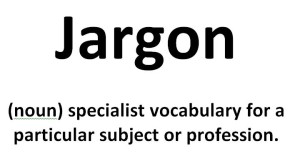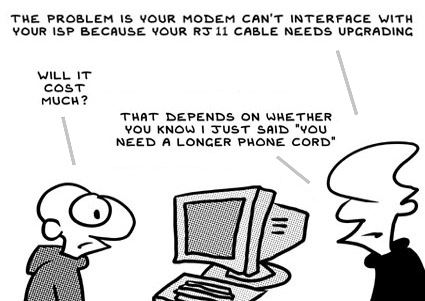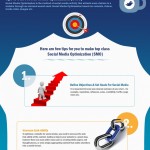Why IT Pros Should Dial Back the Jargon
Techies love jargon. The world of computers, hardware, gaming, and programming, after all, are complex, and truly require a whole vocabulary to describe and navigate. And nothing says “I know what I am talking about” quite like tapping into that specialized vocabulary, completely foreign to the less tech-savvy.
Dropping jargon in the tech world, gaming world, etc., is a great way to announce yourself and meet your peers—those who understand what on Earth you are talking about. The thing to remember about these kinds of technical terms and inside references, is that while they may help identify you as a knowledgeable community member, they also isolate you from the rest (read: the majority) of the world.

Speak l337?
This is an important fact to consider, with games, mobile devices, and technology for work and play becoming more ubiquitous than ever. Folks from every generation and every background are interacting with technology that is increasingly complex and sophisticated—some more willingly than others.
As fun as it may be to contrast your own superior grasp on such subjects with the newbies who can hardly hold a game controller, this misses a valuable opportunity to bridge the gap and help bring more people into the modern technology world—and show your own value as one of the initiated.

Spoiler Alert
It is common knowledge by now that being technically well-versed is valuable—not just socially; demand for IT professionals is high and expanding to all fields, due to a massive swell in the number of users. Less appreciated than this fact, is that these techno wizards become significantly more valuable (and significantly rarer) when they can translate their expertise into lay terms and share the knowledge-wealth.
Contrary to popular fears, making the complex seem simple does not cause your skills and abilities to lose value—quite the contrary.
Paging Dr. N00b
Consider the healthcare field, where federal law (known as Meaningful Use, or MU) now requires U.S. hospitals and medical offices to integrate digital record-keeping in place of the outdated paper-and-pen method that still widely prevails. Suddenly, swarms of physicians, nurses, and medical professionals who paid, studied, and sacrificed in order to become experts in their field must learn to accommodate the field of healthcare informatics.
Medical degrees, unfortunately, often come with a strong sense of pride, which means many are reluctant to adapt to the new digital world they are being forced into. Not only are these new users reluctant adopters, they are a potential nightmare for their IT teams. In such situations, an IT team has a choice: be part of the problem, or be part of the solution.
I Know Something You Don’t Know…
At first, the distinction may seem blurry; after all, being hired as a techie should mean you can freely talk as a techie, right? When appropriate, perhaps—but IT has moved from behind the scenes to front and center. The language of IT has to accommodate the huge numbers of new users, and help make their new devices, programs and systems accessible.
Consider how you would feel if, instead of plainly explaining a health problem to you, your doctor blasted you with the Greek and Latin verbiage of the medical realm, impatient with you when you struggled to follow the diagnosis. You have to listen, because it could be life and death; you need to know what your doctor is telling you. Who is responsible for making that understanding possible?
ID10Ts
Of course, as a patient, you are less likely to simply tune out your doctor and come to your own conclusions. What of the users who are reluctant, dismissive, or simply disasters waiting mangle everything?
There is perhaps no better example of this crowd of users than experienced doctors. The trouble with these kinds of “not for me, thanks” attitudes is that they make it so, so very easy to blame the users. If it weren’t for the users, there would be no user errors.
Blaming the users, frankly, is a crutch IT professionals lean on much too often. Even when it absolutely is a user error, IT’s job is not just to treat the technical problem, but to communicate and relate to the user. Information systems and computers aren’t going anywhere—a more accommodating, less exclusive approach on the part of the techies can go a long way to making the journey less bumpy. And the approach starts with breaking down the jargon into simple, accessible nuggets.

Rebooting Didn’t Work
Realistically, avoiding jargon is not just a matter of flipping a switch. When you have spent your life getting immersed in the language and skills of your niche, you may not even realize when your casual references fly over the heads of others. It is important to remember that communication is always two-way: speaking, and listening. Even if you are the one being called-on to describe and solve a problem, the situation requires you be able to not just say what the problem is, but to listen to the user who experienced it.
Prevention is impossible if you can’t effectively judge whether users understand what you are telling them. Repeating the same thing, slower and louder each time– is not the answer. Listening—to both verbal and nonverbal feedback—is. Finding a way to identify where you are losing someone (was it a word? A phrase? Or do you need a whole new way to illustrate an idea?) will help you recognize in yourself where you are using jargon that the average person doesn’t grasp.
Power or Value?
Becoming an expert is a great investment—the old saying that ‘knowledge is power’ definitely rings true when it comes to techies. Knowledge becomes value not when you hoard it, but when you share it. Learning to identify and avoid jargon with the less-technical crowd turns you into a resource in a way raw knowledge simply cannot.
About the author:
Edgar Wilson is an Oregon native with a passion for cooking, trivia, and politics. He studied conflict resolution and international relations at Amherst College, and has split his time between New England and the Pacific Northwest ever since. He has worked in industries ranging from international marketing to broadcast journalism, currently serving as a marketing consultant and freelance writer. He can be reached via email here or on Twitter @EdgarTwilson.
















Pingback: Shaping Company Culture Through Language | Hppy